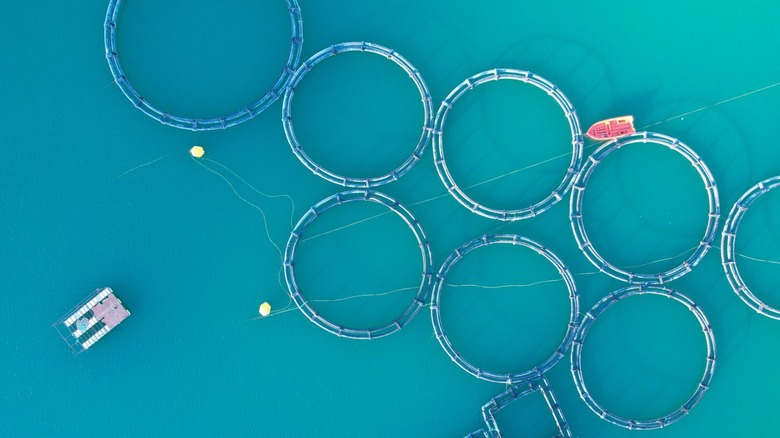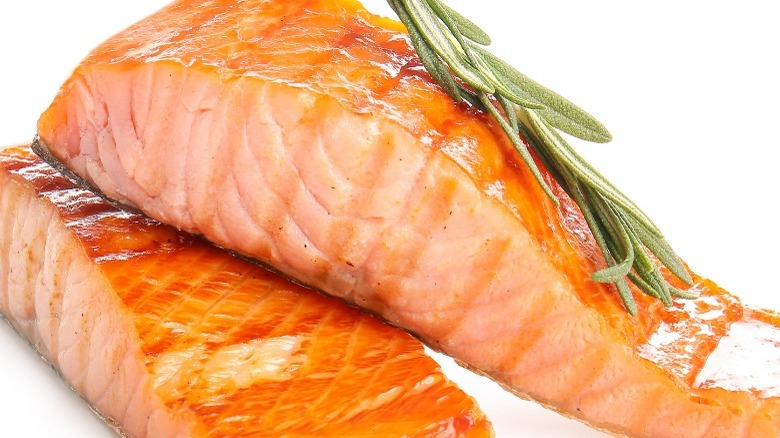How Chefs Are Being Reeled In With Farm-Raised Seafood's Sustainability
Correction 7/18/22: This article has been updated to clarify the Environmental Defense Fund's stance on overfishing and aquaculture.
Farm-raised fish haven't always been the catch of the day. As recently as 2017, chefs in Seattle called fish from farms "just gross" and added that they "taste bad," according to the Seattle Times. But that mindset is changing as more chefs are starting to buy into the idea of using fish from a farm hook, line, and sinker.
The sustainability of aquaculture is a big part of the bait that has attracted restaurant owners and chefs. In a July 6 report, Nation's Restaurant News quoted seafood chefs and restaurateurs who called serving farm-raised fish "the right thing to do" and have restricted their menus to only offering fish sourced in a sustainable fashion.
In fact, Successful Farming says that in the three decades leading up to 2018, the number of farm-raised fish went from accounting for just 10% of the total supply to half of the available stock. While some wild-caught species such as Mahi Mahi rank among the more sustainable seafood options (via the NOAA), Nation's Restaurant News lays out how advancements in fish farming techniques have put sustainability on the menu.
Chefs are fishing for farm-raised seafood
What's behind chefs' increasing shift to sustainable fish? It's more than just the fact that diners are curious about whether their seafood is sustainable. Nation's Restaurant News interviewed restaurant owners and chefs to find out why using farm-raised fish is becoming the prevailing school of thought. Chef Todd Mitgang, who owns New York City restaurant Crave Fishbar, said that "wild is not always the sustainable option." The Environmental Defense Fund, too, points out how overfishing threatens ecosystems and could ultimately lead to the collapse of fish supplies. (However, the EDF clarified in a statement provided to Mashed that "with science-backed management, many wild caught fisheries can be sustainable.") Advancements in recirculating aquaculture systems, meanwhile, enable chefs to meet consumers' demands while reducing environmental impacts.
But even without modern advancements, some chefs could see the benefits decades ago. Melvin Wilson, who launched an Illinois aquafarm in 1992, told the Chicago Tribune that "there aren't enough wild fish to satisfy current demand" and "aquaculture plugs the gap between the fish caught in the wilds and the demand." But in those days, aquafarm fish had a reputation for being "bland." That doesn't mean today's chefs are sacrificing flavor and texture to acquire their stocks more sustainably, though.
Mitgang told Nation's Restaurant News that farm-raised salmon taste richer than their wild-caught cousins. And president, chief sushi officer, and CEO of Sushi Maki, Abe Ng, said that the icy water conditions make farm-raised salmon well-suited to be eaten raw.

